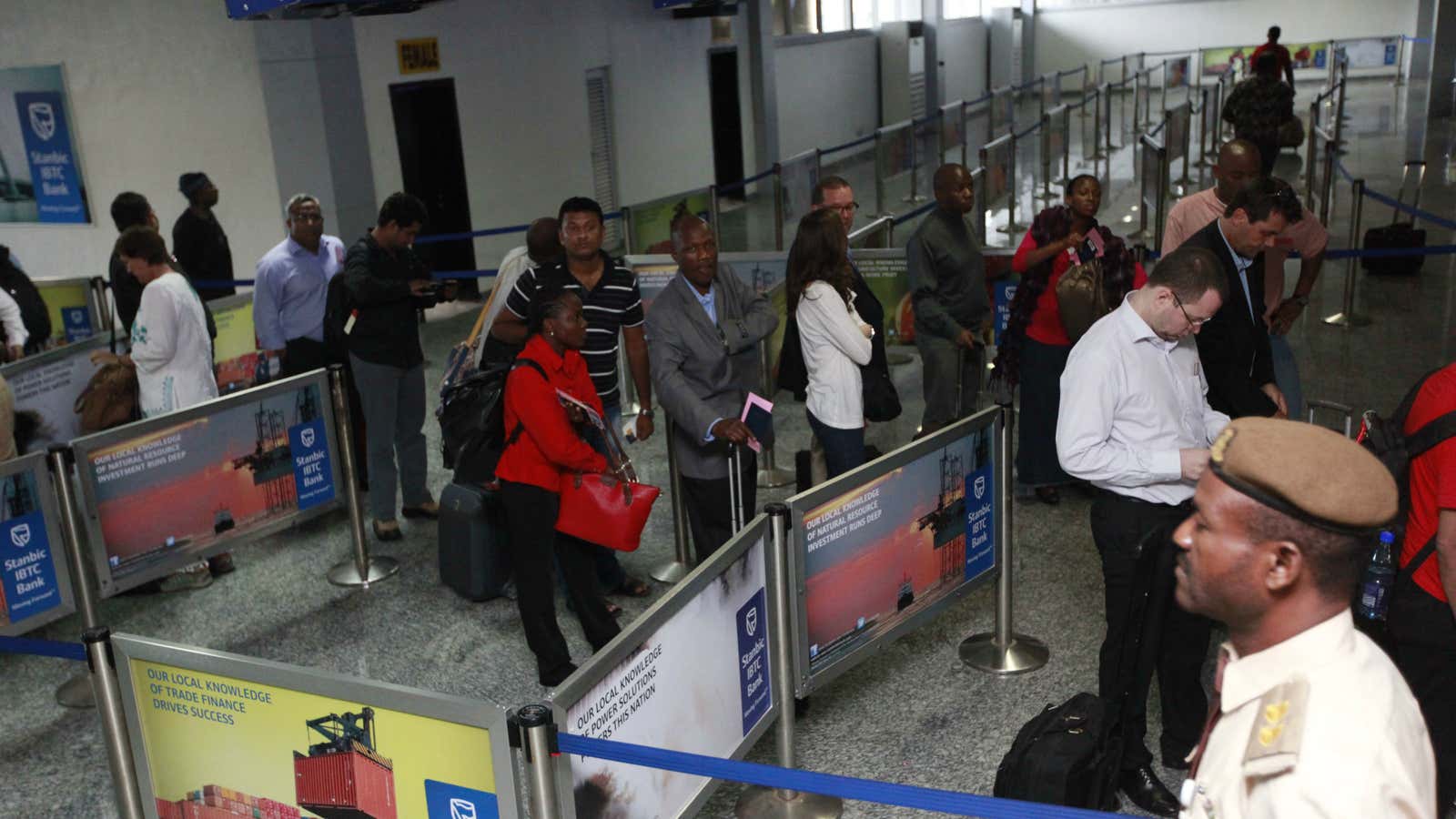Over the past 48 hours, much of the coverage of President Trump’s executive order has focused on entry bans to citizens of seven Muslim-majority countries and rightly so. With lives awkwardly disrupted and travelers stranded at airports in transit to America, or detained in America when they arrive, the human toll of the ban has been significant.
Three African countries—Sudan, Libya and Somalia—are directly implicated in the ban, but even more Africans could be affected by other parts of the executive order.
Specifically, Section 9 of Trump’s executive order suggests that beyond banning citizens from the seven stated countries, the United States, under Trump’s presidency, will become stricter on reciprocity for visa fees, processing and validity period.
The Secretary of State shall review all non-immigrant visa reciprocity agreements to ensure that they are, with respect to each visa classification, truly reciprocal insofar as practicable with respect to validity period and fees, as required by sections 221(c) and 281 of the INA, 8 U.S.C. 1201(c) and 1351, and other treatment. If a country does not treat United States nationals seeking non-immigrant visas in a reciprocal manner, the Secretary of State shall adjust the visa validity period, fee schedule, or other treatment to match the treatment of United States nationals by the foreign country, to the extent practicable.
Put another way, Rex Tillerson, America’s incoming secretary of State under the Trump administration will be tasked with ensuring countries get the same treatment, or “deal” as Trump might say, meted out to Americans seeking visas. Given that caveat, a number of African countries might be subject to reprisals of visa fee hikes and curtailed visa validity periods.
Nigeria, Africa’s most populous country and a longtime US ally, is one of those that may be caught in diplomatic cross-hairs of Trump’s “America First” visa policies. In 2015, Nigeria accounted for 32% of the nearly half a million nonimmigrant American visas issued to nationals of African countries and received more visas than the four other countries that make up the top five in Africa when combined.
But given Trump executive order, that number may drop given the disparity in visa processes for citizens travelling between both countries, particularly with regard to visa fees. While the United States charges Nigerian visa applicants $160 in fees, Nigeria charges American visa applicants $215 in total, inclusive of a $35 “processing charge.” Given the difficulty of Nigeria’s visa procurement process for foreigners which has been compared to getting a “camel passing through the eye of a needle,” Nigeria might be a risk of reprisals by the US Department of State under Trump.
Angola, which saw its citizens issued more than 10,000 non-immigrant US visas in 2015, could also be at risk. While it charges $20 less as visa fees for Americans seeking tourist visas than United States charges Angolan citizens, Angola’s visa issuing process is also known to be difficult. Writing in The Atlantic in 2015, Albert Podell, the American adventurer who has visited 196 countries, describes Angola as the ”most difficult of all the countries” visited mainly down to its “stingy visa policy.” Angolan visas, if successfully issued, can take up to eight weeks to process, compared to the two working days the American embassy processes visas for Angolans.
Another section of Trump’s executive order could also make travel to America more difficult for Africans. In Section 8, Trump says the “Secretary of State shall immediately suspend the Visa Interview Waiver Program.” Under the interview waiver program, travelers previously issued with two-year visas could simply reapply for new visas by dropping off their passports at designated consulate centers, but Trump’s executive order will now require that, regardless of travel history, “all individuals seeking a nonimmigrant visa undergo an in-person interview, subject to specific statutory exceptions.”
